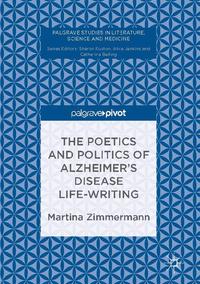This book is open access under a CC BY 4.0 license. This is the first book-length exploration of the thoughts and experiences expressed by dementia patients in published narratives over the last thirty years. It contrasts third-person caregiver and first-person patient accounts from different languages and a range of media, focusing on the poetical and political questions these narratives raise: what images do narrators appropriate; what narrative plot do they adapt; and how do they draw on established strategies of life-writing. It also analyses how these accounts engage with the culturally dominant Alzheimer's narrative that centres on dependence and vulnerability, and addresses how they relate to discourses of gender and aging. Linking literary scholarship to the medico-scientific understanding of dementia as a neurodegenerative condition, this book argues that, first, patients' articulations must be made central to dementia discourse; and second, committed alleviation of caregiver burden through social support systems and altered healthcare policies requires significantly altered views about aging, dementia, and Alzheimer's patients. Martina Zimmermann has fifteen years of research and teaching experience in Pharmacology, and is Privatdozentin at Goethe University Frankfurt, Germany. Her scholarly interests have increasingly shifted towards the Health Humanities: with an MA in Literature and Medicine, she currently researches for a book on dementia in Science, Medicine and Literature of the 20th Century at King's College London, UK, funded by the Wellcome Trust.
